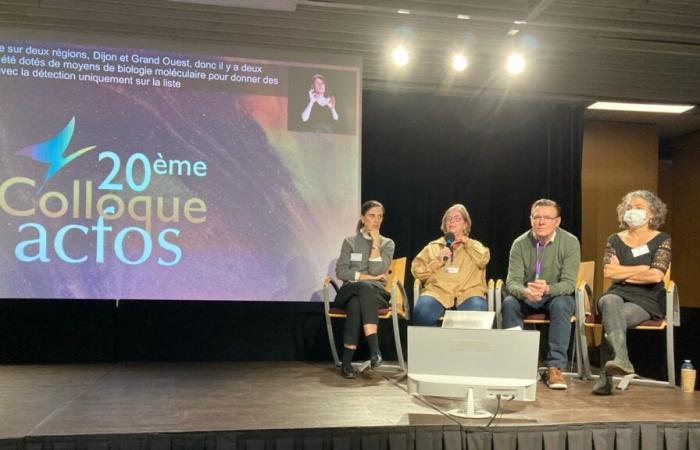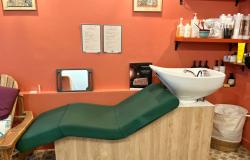The 2024 edition of the Acfos annual conference is coming to an end. Organized from November 19 to 20 at Espace Charenton, in Paris, it brought together nearly 450 registrants, including 130 in person. A participation “ high ” Who ” confirms the importance attached to this theme by professionals involved in child deafness and of course parents », commented Dr Yannick Lerosey, ENT at Évreux hospital and Rouen University Hospital and vice-president of Acfosin introduction to the event. And to recall that the association, which brings together volunteers “ has only existed for 36 years thanks to the support of its sponsors, registrations [au] annual conference and [aux] training carried out throughout the year ».
The event began with a tribute to Dr Pascal Schmidt, ENT and tireless artisan of screening in Champagne-Ardenne, who died in 2021, at the age of 61. “ Those who had the chance to know him and work with him know that he was a man of science but above all a man of heart and that what characterized him most was humility.testified Yannick Lerosey. During his short life, his heart as a doctor always beat for those he called “my little deaf people”. Without the illness he would have been with us today and I wanted to dedicate these two days to him ».
A contrasting assessment
The various interventions made it possible to take stock of “ on what is going well, what is not going well or what is going less well, to share our points of view, sometimes different but often similar, and to see what are the perspectives and developments to consider regarding this neonatal screening », Explained Yannick Lerosey. The inventory was presented by Dr Catherine Durand, pediatrician, coordinator of the 2 Savoie perinatal network (RP2S), deafness screening referent at URPHE (operator for the Auvergne Rhône-Alpes region) and vice-president of the very young FFADAN association (French Federation of actors in neonatal hearing screening), born in 2022. The doctor gave a mixed assessment of the French system. In fact, there is a lack of indicators to precisely evaluate the program implemented in 2014. “ Unfortunately the only article with national data available, even if it is relatively recent [2021]concern data from the first two years of screening and there is no longer any systematic reporting of indicatorsshe explained. Furthermore, in France there is no national register of deaf babies. » Reason why the vice-president of the FFADAN indicated to wait “ impatiently » the results of the HAS evaluation which should be made public very soon.
Based on available data, Catherine Durand described a well-monitored program – 100% of maternity units screen, according to the 2021 national perinatal survey – and “ very correct societal acceptability »: he encounters extremely little refusal from parents. Its completeness is also very good. On the other hand, the pediatrician points to a lack of post-screening indicators. Apart from a few exceptions, the results are less good and the “ issues » : « We only have data on entry into the diagnostic phase and not much after “, she laments. “ We can say that it works quite well but we don’t know how to measure it well and we don’t have a good idea of efficiency.continues Catherine Durand. There are major organizational disparities and clearly territorial inequality in the provision of care for newborns in France, but there is both diversity and convergence of certain regional solutions. »
The FFADAN advocates, among other improvements, for the performance of a deferred T3 test. For the moment, this is not included in the screening procedures and is not funded. It is carried out by certain regions generally in the month following birth and makes it possible to reduce some of the false positives identified in maternity hospitals during T1 and T2.






